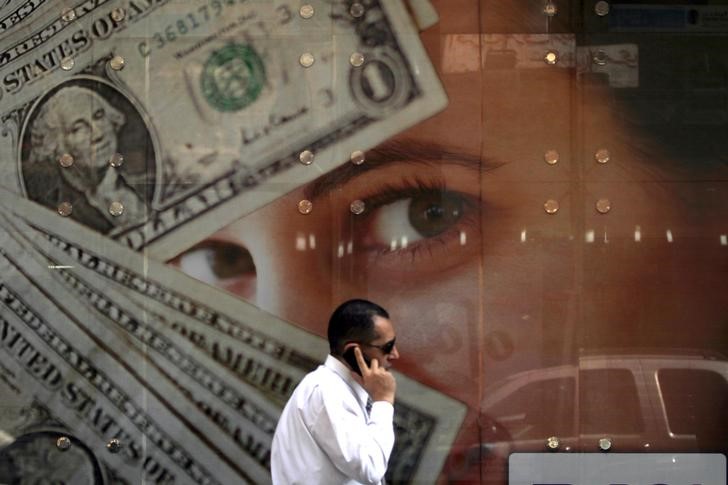Investing.com – The U.S. dollar climbed against its rivals on Tuesday, on data showing underlying strength in the labor market, but upside was limited by a rise in the yen as U.S.-China trade worries fueled safe-haven demand.
The U.S. dollar index, which measures the greenback against a trade-weighted basket of six major currencies, rose by 0.15% to 97.41.
The U.S. Labor Department's latest Job Openings and Labor Turnover Survey (JOLTs) report, a measure of labor demand, showed job openings in March improve to about 7.49 million from 7.14 million in February, beating expectations of 7.350 million.
The upbeat data provides further evidence that the labor market remains robust and just a few days after data on Friday showed the U.S. economy created more jobs than expected.
But a rise in safe-haven currencies like the yen on fresh concerns that the U.S. may escalate its trade conflict with China kept a lid on growth in the greenback.
Despite confirming that talks with China would go ahead this week, U.S. trade representative Robert Lighthizer accused China of backtracking on commitments in trade talks, and reaffirmed President Donald Trump's threat to raise tariffs on $200 billion worth of Chinese goods to 25% from 10%. The hike on tariffs would come into effect on Friday at 12:01 a.m. ET, Lighthizer confirmed.
USD/JPY fell 0.46% to Y110.26.
USD/GBP fell 0.31% to $1.3055 as calls for Prime Minister Theresa May to resign grew louder following the results of local elections, in which both the ruling party and opposition suffered heavy defeats amid a backlash over a prolonged Brexit process.
May met with Graham Brady, chairman of an influential committee representing members of parliament from her Conservative party, according to the BBC. Later, she said Britain is targeting July 1 as the date the UK would leave the European Union. It was not clear if she's agreed to a date for stepping down as prime minister.
EUR/USD fell 0.20% to $1.1175 as German factory orders bounced less-than-expected and the European Commission cut its GDP forecasts for 2019 for all members of the bloc, with the notable exception of Greece.
USD/CAD rose 0.29% to C$1.3481 as the loonie shrugged off better-than-expected Canadian manufacturing growth amid a slide in U.S. oil prices on U.S.-China trade worries.
